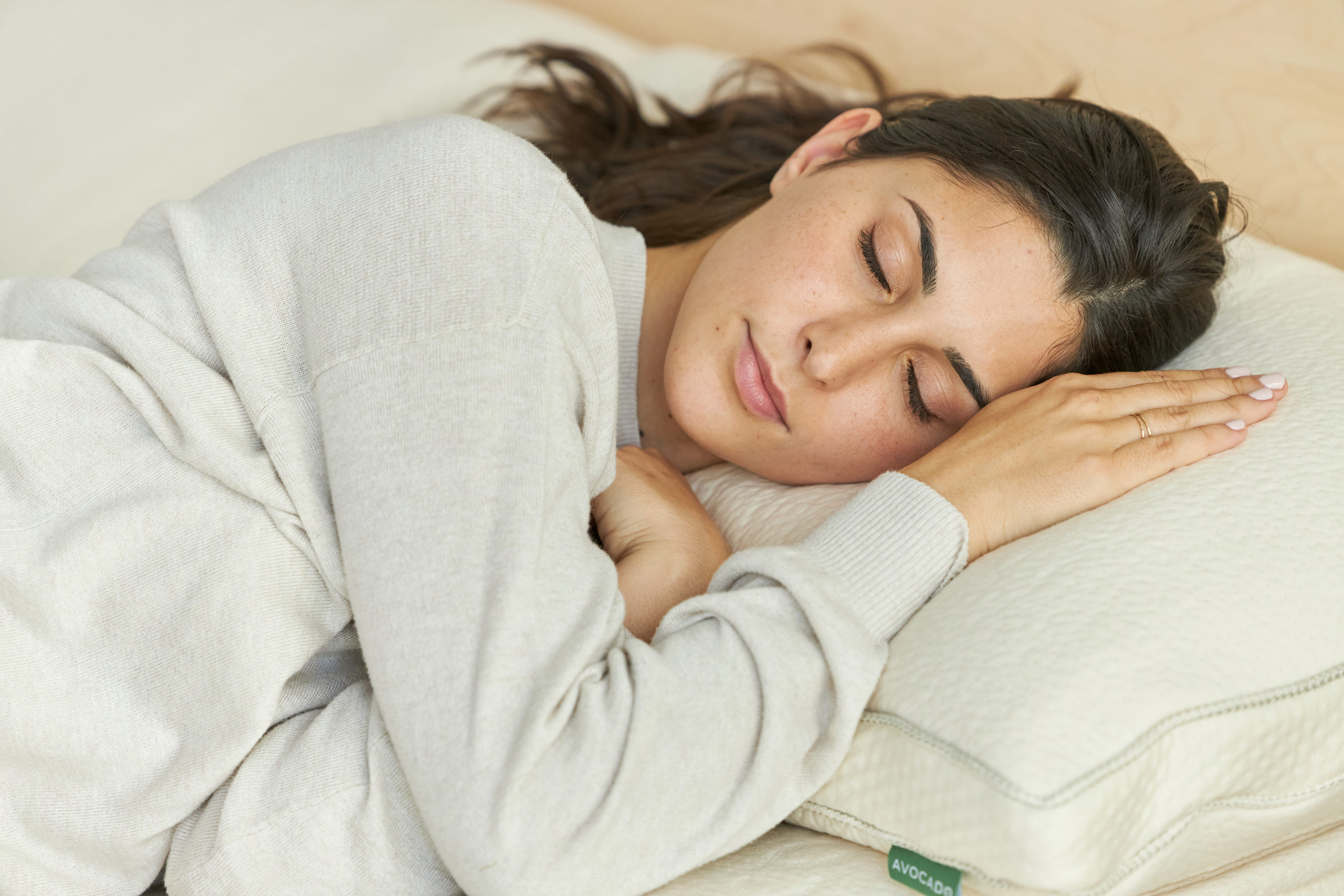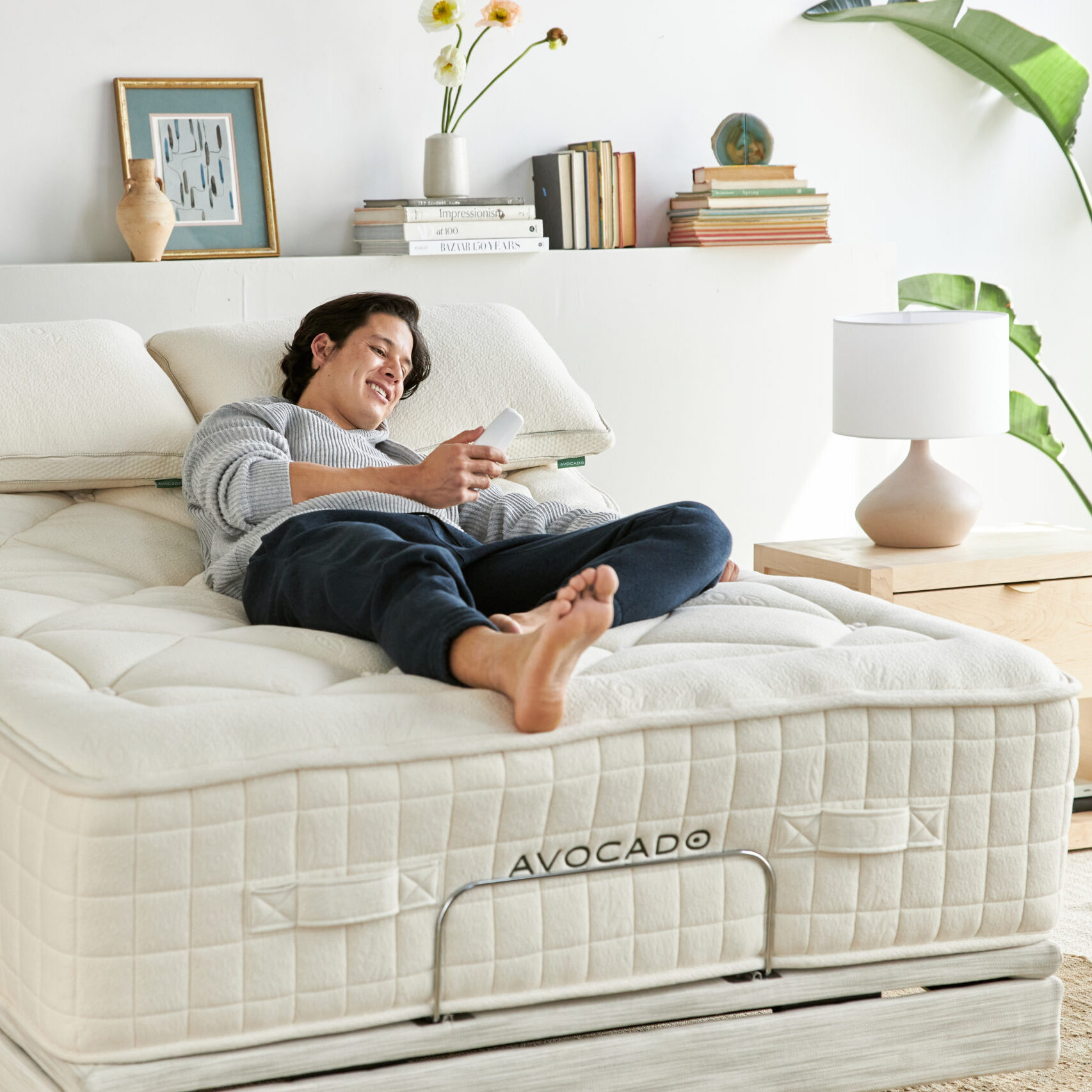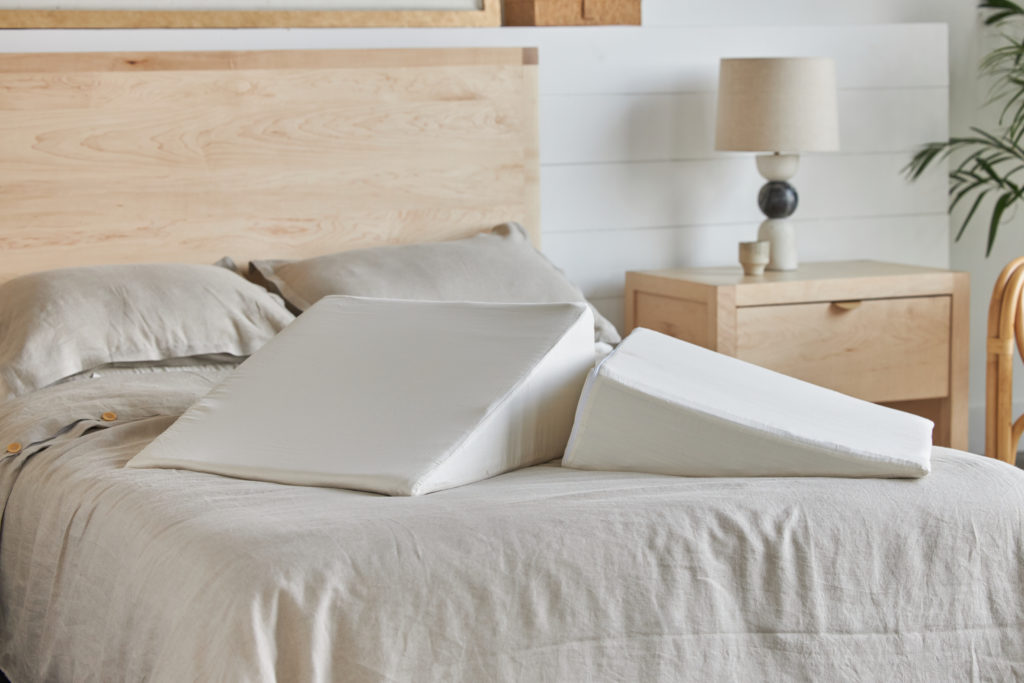Snoring leaving you sluggish and ready for an afternoon nap? Here are four ways to reduce snoring so you (and your partner) can get quality sleep.
If you have a partner who snores, you know all too well how disruptive it is to a good night’s sleep. Snoring, which occurs when airflow is blocked or restricted in the upper airway located behind your nose, is common. In fact, around half of adults in the U.S. snore. The reasons vary from pregnancy and congestion to genetics, but embarrassment causes people — women in particular — to underreport symptoms or not bring it up to their healthcare provider at all.
Seattle-based sleep expert Catherine Darley, N.D. specializes in naturopathic treatment of sleep disorders. Part of her approach includes educating clients on the genetic factors that contribute to snoring to help eliminate the social stigma associated with the sleep issue.
“While weight loss can help, we now know that snoring isn’t so much about body type or weight as it is the shape of the upper airway — how large the tongue is, the size of the tonsils, how low the soft palate and uvula are,” says Darley. “The shape of our airway is a heritable characteristic. If your parent snored, it increases your risk of snoring.”
Snoring is also one of the most prevalent symptoms of obstructive sleep apnea (OSA) — when the airway is blocked or collapses during sleep causing breathing to pause for 10 seconds or more repeatedly through the night. Left unchecked, OSA is associated with daytime fatigue and conditions spanning diabetes and depression to high blood pressure and heart disease. The most significant risk, says Darley, is carotid artery disease, and snorers are twice as likely to develop the health condition than those who don’t snore.

Read more: When is it Time For a Sleep Study?
But most people who snore aren’t actually aware of it, which results in underdiagnosis of more significant medical issues — about 20 percent of Americans have obstructive sleep apnea, but only about half have received an official diagnosis.
“Snoring and apnea tend to worsen as we age. People 60 and over make up about 50 percent of those who snore, so that should also be a consideration,” says Darley. While snoring is historically thought to affect men at a higher rate, women have increased rates of snoring and apnea after menopause that approach the rates seen in men.
Not all people who snore have a clinical sleep disorder. However, sleep deficiency has an outsized impact on our overall health and well-being — it can also create stress in relationships if snoring is preventing those around you from getting quality sleep.
While it can be bothersome to a sleep partner, light, infrequent snoring is normal. Mild snoring (often called primary snoring) occurs more than three nights per week and might be more disruptive, but doesn’t usually require further testing unless there are signs of sleep disturbance.
For those in the light or mild category, a few lifestyle changes can make all the difference. Here are a few simple tips to prevent and reduce snoring:
Darley recommends starting with a simple adjustment in your sleep style. “A side-lying sleeping posture helps treat snoring,” she says. “Using a pillow between the knees and/or under the upper arm can help maintain neutral spine alignment and can make the position more comfortable.”
The gentle slope of Avocado’s Organic Latex Wedge Pillow slightly elevates the head and neck, opening the airways and helping to reduce snoring, acid reflux, sleep apnea, and congestion. And instead of making your snoring partner sleep on the couch, the “zero-g” preset on Avocado’s Eco Pro Adjustable Bed Base and the “anti-snore” preset on the Eco and Eco Plus Adjustable Bases will gently ease them into a more upright position to help reduce snoring.
“You should always be able to breathe through your nose, as mouth breathing narrows the airway,” says Darley. Address whatever environmental allergies, food intolerances, or anatomical obstruction (for example, a deviated palate) that may be limiting nasal breathing and increasing the likelihood of snoring. Using breathing strips at night can help open nasal passages and lessen or eliminate mouth breathing.
Read more: Does Your Sleep Environment Need an Upgrade?
Darley recommends putting a cap on alcohol consumption three hours before bedtime and sticking to alcohol guidelines in terms of drinks per day. Research shows that moderate or heavy drinking can cause snoring or episodes of obstructive sleep apnea, even in people who don’t have the condition. Alcohol decreases your drive to breathe, making breaths shallow, and relaxes the muscles in your throat, which can contribute to snoring and sleep apnea.
A dentist with specialized training in sleep medicine can provide a mandibular advancement device (it looks a lot like a mouthguard). Wearing a mouthguard to bed may sound silly, but it reduces restriction at the back of the throat by moving the jaw and tongue forward, making it easier to breathe and get some shuteye.

Read more: How Food And Alcohol Affect Sleep
If you’ve tried all these techniques and you’re still experiencing frequent snoring that keeps your partner up at night or if they observe regular breathing pauses, Darley recommends connecting with your physician to have your airway examined, assess other risk factors, and determine if further evaluation by a sleep expert is needed.
For those who primarily sleep alone, use the record function on your phone (listening for both snoring and pauses in breathing, especially in the second half of the night), the snoring detection feature in the Sleep Cycle app, or an app specifically designed to monitor snoring. These will help you determine if your feelings of fatigue are related to lack of sleep due to this common concern.
Have feedback on our story? Email [email protected] to let us know what you think!

Shop Pillows
The Essential Organic Pillow Collection
Gentle, breathable, non-toxic support.






